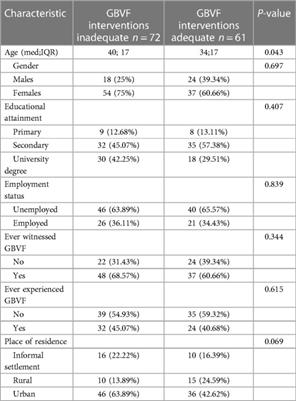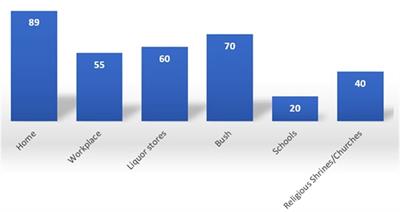ORIGINAL RESEARCH
Published on 24 Jul 2024
Gender-based violence and femicide interventions-perspectives from community members and activists in South Africa

doi 10.3389/fgwh.2024.1199743
- 6,702 views
- 1 citation
2,604
Total downloads
10k
Total views and downloads
ORIGINAL RESEARCH
Published on 24 Jul 2024

MINI REVIEW
Published on 07 Sep 2023
